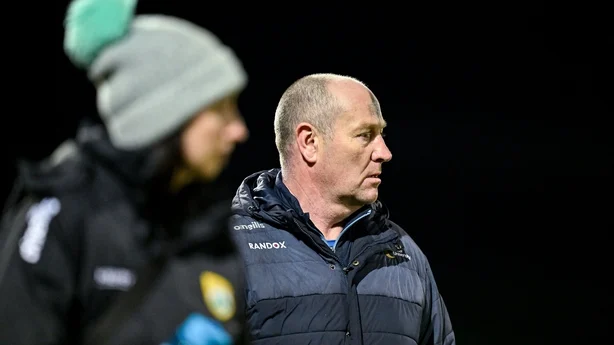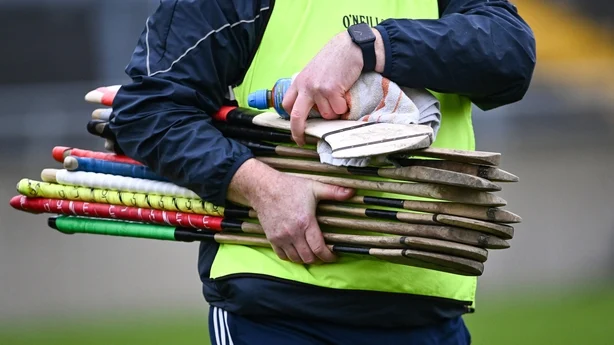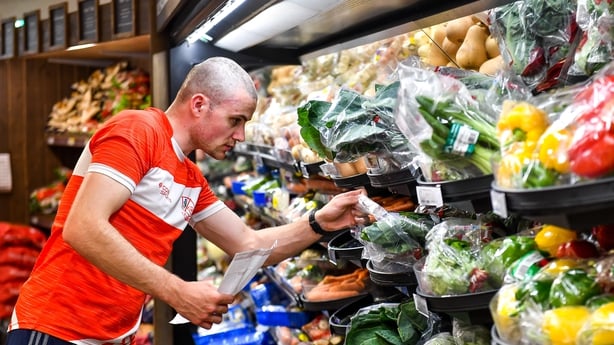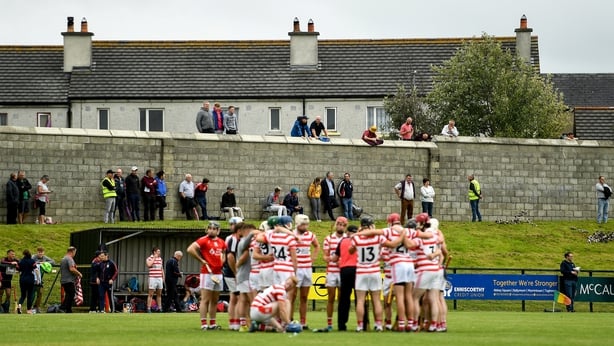At last year's GAA Special Congress, a motion was passed establishing new demographics committees across Ireland.
Counties have since established the position in their county executives and included the officer’s voice at management level.
And the man who pushed for the position, Tyrone Central Council delegate Benny Hurl, is glad that the position is recognised in the county's decision-making process.
"Unless we change how we do things, we are heading for trouble," he told RTE Sport.
"Demographics is the single greatest threat to our association," he says. "The challenges that are faced by our clubs are real and are mounting. We need to intervene.
Hurl is a busy man. Aside from his role as Central Council delegate, he is chair of the GAA’s Higher Education Council and, at the start of this year, the Ardboe man led UUJ to the Sigerson Cup title.
In the coming days, he will sit down to seal a set of proposals to hand to the association’s management committee.

And he says the GAA will have to be prepared to take some bold measures.
"Our sense of community, pride of place, our sense of GAA community and our Irishness – it is all under threat now, in my opinion, if we don’t act on the information that the demographic shifts are providing us with," he adds.
So wherein lie the problems?
Across the 32 counties the population stands at just over seven million people, up significantly from the low of five million people in1851.
And therein lies a shift. Up to 60 years ago, more than half of our population lived in rural areas. That’s down now to less than 40%.
Populations in areas like Fingal, Kildare and Meath are growing hugely.
The rate of growth is a lot slower in counties like Donegal, Mayo and Roscommon.
This brings its own issues for the GAA.

Urban clubs are overwhelmed with playing numbers. Some underage squads have to find game time and activity for between 40 and 60 players. The number is well above that for clubs in the capital. There is a lack of pitches and facilities to train upon such is the demand.
Meanwhile, many rural clubs must cope with numbers leaving their parish areas and moving inwards to towns and urban parts.
Hurl warns that unless the GAA acts in addressing these demographic shifts the association is heading towards a catastrophe.
"During Covid, we came together as an association, and we helped vulnerable people in our areas.
"We helped with PPE gear, delivering food and checking in on people who needed help.
"The GAA people stepped beyond and did what they always do – reached out into the community.
"But if we don’t act soon and implement change, drive new policies, and examine the reasons why clubs in rural communities are struggling, and urban clubs are overwhelmed, then we will lose the heart and soul of what we are all about as an association."

In that regard, the research tools deployed by Croke Park to glean insights from the movement of people on this island are in full deployment.
The Foireann Platform came into operation during Covid times in 2020/2021 and has provided much data on the shifting trends that clubs are experiencing.
A subsequent partnership with a Maynooth University Spin-Out company People and Place has led to the creation of the GAA Data Hub.
The hub assesses all relevant data from the Central Statistics Office and the Department of Education so that clubs and counties can monitor everything from population to participation.
In tandem, the introduction of the County Demographics Officer Role is allowing the association to track the broad-ranging challenges facing clubs within their respective counties.
In some rural areas the prospect of amalgamation looms. Regionalisation of teams and fixtures is another alternative.
In urban centres the possibility of setting up a new GAA club will have to be looked at.
"We have a huge tradition in the GAA and policies like the parish rule have served us well in the past," Hurl adds.
"But society has changed all around us. The way we live has changed utterly. People don’t get to live where they want for a variety of reasons, they have to move elsewhere and at times their clubs at home desperately need them.
"Our plan as a Demographics Committee now is to contact every club we have and identify their issues. We need to find out what is possible and acceptable to them to solve those issues.
"From there we hope to present our findings to management. And to make sure all our plans are practical and enforceable; we need huge buy-in from the Government. The Rural Development Fund, for example, holds all the tools needed to help us solve the problems. It identifies all the challenges out there.
"It's clear that the government has a plan and a policy but implementing their policies is proving to be very difficult on the ground," he adds.
"We'll need governments north and south to make it easier for people to live, work, have family in rural Ireland which safeguards the GAA club and in turn our culture, our identity, our Irishness, our identity, language and our national sports.
"There's no point in us having the best facilities but nobody to play - and the opposite is the case in the big urban centres."

The Rural Regeneration and Development Fund offers a commitment of €1 billion by the Government for rural Ireland over the period 2019 to 2027.
Depending on criteria, it identifies and offers funding for projects with infrastructure, building vacancy/ refurbishment and redevelopment needs.
Funding is available for development of community or public facilities, infrastructure that improves telecommunications connectivity, projects that support job creation, entrepreneurship and innovation in rural areas and the enhancement of heritage and community assets including the provision/enhancement of recreational or leisure facilities.
"Everything that is in that programme has come back to us in our own research," Hurl reveals.
"We know what the issues are. We need to identify where they lie and then we need government help to address them."
The GAA’s Data Insights Hub will continue to provide concise information. It maps data to provide an evidence-based approach and will help clubs break down their population by age and gender.
"We see what the problems are," Hurl concludes.
"It’s solution time. It’s time the GAA formed a department to identify where new clubs should be formed.
"Is it time to define the size of a club now?"
"We need to help people establish those new clubs where needed.
"And we need to breathe life back into the rural units in our association.
"The time for talking is over. Change is needed. It’s how badly we want to address this change that will dictate our future."
Disclaimer: The copyright of this article belongs to the original author. Reposting this article is solely for the purpose of information dissemination and does not constitute any investment advice. If there is any infringement, please contact us immediately. We will make corrections or deletions as necessary. Thank you.






